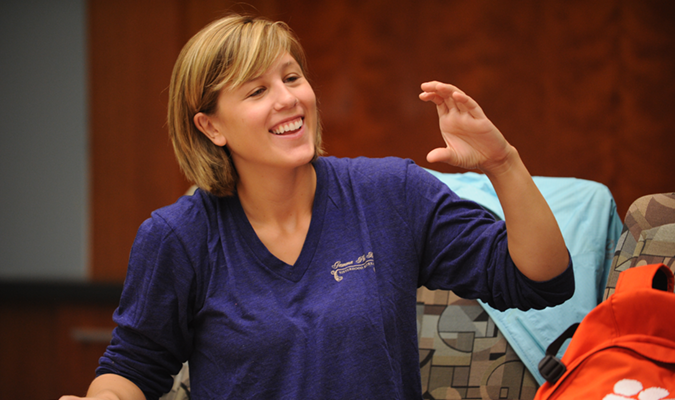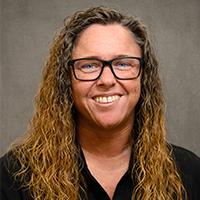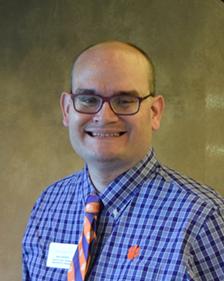American Sign Language
American Sign Language (ASL) is a natural visual-spatial language which is governed by complex linguistic rules and parameters that are distinct from spoken and written languages. It is most commonly used by the Deaf Community in the United States and Canada. The Deaf Community is a rich, vibrant linguistic community who share a common set of social beliefs, behaviors, art, literary traditions, history, and values.
Modern Languages: ASL Major Modern Languages Education: ASL ASL Minor Educational Interpreting Minor
About ASL
ASL as a Language
American Sign Language (ASL) is a natural language which is governed by complex linguistic rules and parameters that are distinct from spoken and written languages. It is most commonly used by the Deaf Community in the United States and Canada. The Deaf Community is a rich, vibrant linguistic community who share a common set of social beliefs, behaviors, art, literary traditions, history, and values.
History of ASL
The origins of ASL can be traced back to Abee de l’Epee in Paris, France in the mid-18th century. From there it can be traced to Laurent Clerc and Thomas Gallaudet bringing French Sign Language (LSF) to America in 1817 (Lane, Hoffmeister, and Bahan, 1996) The blending of LSF and the signed language of the early 1600’s used by English settlers on Martha’s Vineyard in Massachusetts, were the linguistic skeletons for modern ASL. As all languages grow, so too did ASL and it has been passed from one generation among members of the Deaf Community to the next to remain a viable language to this day. ASL is truly an indigenous American language and at Clemson University, you are able to earn a Bachelor of Arts degree in Modern Languages with a concentration in ASL.
ASL at Clemson
Clemson University is the only public university in South Carolina that offers a Modern Languages baccalaureate degree in American Sign Language (ASL). ASL has been offered at Clemson University since 2000 and Clemson is one of 172 other four-year institutions fully recognizing ASL as a unique, complex language.
ASL Growth
The Modern Languages Association (MLA) indicated nationwide enrolment in ASL courses increased 6,583% change from 1990-2016 which repositioned ASL as the third most studied languages on college campuses in the United States. “Students find that studying an indigenous American language gives them another perspective on American life and culture. (MLA, 2009, p. 3).”
Research and ASL
ASL students are actively encouraged to engage in innovative research as it is a relatively young field. Through Creative Inquiry, independent study, and other methods, ASL students will have the chance to start their research projects with faculty. These two or three semester long research programs are directed by ASL faculty. Undergraduate students learn the answers to their burning concerns and submit their ideas to ASL and the Deaf/ASL community challenges through ASL Creative Inquiry or other research programs.
Study Abroad and ASL
Studying abroad is a requirement for all Clemson language majors, including ASL, as part of their degree programs. As a result, ASL majors will become immersed in signed languages from various nations that are distinct from ASL. The exploration of other cultures within the worldwide Deaf community is part of this experience. Furthermore, we see this exceptional academic potential as a key strength and a defining feature of our majors. As part of education for the twenty-first century, we see ourselves as global citizens dedicated to lifelong exploration and success, both domestically and abroad.
ASL At Clemson
Bachelor of Arts in Modern Languages: ASL
The Bachelor of Arts degree in Modern Languages provides a broadly humanistic course of study in American Sign Language. The program seeks to provide students with basic competence in both the relevant language and the literary and cultural heritage pertaining to ASL and Deaf communities. The Bachelor of Arts in Modern Languages is intended to prepare students for a wide range of careers as well as for the kinds of graduate programs that are an appropriate starting point for such careers. All Modern Languages students are required to study abroad with a Clemson-approved program
Bachelor of Arts in Modern Languages Education: ASL
The Bachelor of Arts degree in Modern Languages Education is available to students preparing to teach American Sign Language, (grades PK-12). The teaching field should be selected as early as possible so appropriate freshman and sophomore courses may be taken. Each curriculum may lead to a double major composed of the major concentration in the teaching field and the corresponding content major. To receive a double major in Secondary Education and the selected content area, a Change of Academic Program form must be completed to declare both majors. To achieve a double major, the appropriate plan of study under Modern Languages Education must be followed and all major requirements from both programs must be satisfied. Specific courses and sequences have been designated to meet requirements for those planning to teach. The professional education courses should be completed in sequence.
Educational Interpreting Minor
The ASL-English Educational Interpreting minor coursework is a 15-credit hour emphasis is designed to prepare Modern Language: ASL students as entry-level interpreters to work with students who are Deaf in K-12 classrooms. The Educational Interpreting Minor transitions from language learning to applied linguistics with coursework focusing on the transfer of meaning between languages specifically in the educational setting. Each ASL-English educational interpreting student does field observation and an interpreting internship coursework. Entrance into the program requires demonstration of advanced ASL fluency.
American Sign Language Studies Minor
The American Sign Language (ASL) Studies minor fosters an understanding of Deaf culture and communication through the study of language. The ASL Studies minor includes elementary through intermediate level language and culture courses, as well as academic experiences that highlight expressive and receptive competencies in a visual-gestural language, and overview of the Deaf community. The ASL Studies minor, builds a solid knowledge of ASL and the Deaf Community and allows students to integrate those foundations into their academic disciplines. A minor in ASL Studies, however, does not lead to becoming an interpreter.
Supporting ASL Learning
The Clemson ASL Club
The Clemson American Sign Language (ASL) Club is a vibrant and dynamic independent student organization that brings students from various backgrounds to learn and celebrate the rich culture and American Sign Language with local Deaf community members. With a focus on building community, the club offers a variety of social, cultural, and educational activities for its members. Beginner and experienced signers alike find the Clemson ASL Club a great way to connect with others who share interest in the ASL Community. Students actively improve their ASL skills, learn more about the ASL community's culture, and have fun and make new friends, the club is the perfect place to do so. With a supportive and welcoming atmosphere, Clemson's American Sign Language Club is an excellent resource for anyone learning ASL and the ASL Community. Students, faculty and community members find a warm and inclusive environment where they grow, learn, and have fun. One of the cherished traditions of Clemson University is having the ASL Club sign the national anthem in front of 70+ thousand fans at Memorial Stadium once a year. The club has been doing this annually since 2001, which is always a memorable moment for the club and the audience
American Sign Language Honor Society (ASLHS)
The American Sign Language Honor Society (ASLHS) recognizes the outstanding achievements of students studying ASL and encourage the use of the language along with lifelong learning and language enjoyment. Clemson has its own ASLHS chapter which recognizes outstanding academic achievement in ASL studies with two medals of honors the Laurent Clerc and Alice Cogswell medals. These are awarded to ASL majors and minors based on GPAs, ASL coursework, and service with the Deaf Community.
History of ASL at Clemson
History of ASL at Clemson 2000-2016
Contact information
The Clemson University ASL Program faculty have been recognized by the Deaf Community both statewide and nationally for its unique offerings and native-signer services. Clemson University is actively invited to participate in numerous statewide meetings because of its unique relationship with the Deaf Community.
Bo Clements
361-D Humanities Hall
wrcleme@clemson.edu
Giving to ASL
Clubs
Faculty
-
ASL Faculty
American Sign Language

Bo Clements, M.S., Certified ASLTA - Professional/Master
Section Head, Senior Lecturer of American Sign Language
Email: wrcleme@clemson.edu
Office: 361-D Humanities Hall

Jody Cripps, Ph.D.
Assistant Professor of ASL
Courses: American Sign Language 1-5; Linguistics of American Sign Language; Development of Signed Language and Reading Skills with Deaf Children; Deaf History; Literature, Music, and Film in the Deaf Community
Research Interests: Universal Design, Signed Music, Signed Language Pathology, Language and Literacy Acquisition for Deaf Children
Email: jcripps@clemson.edu
Office: 309 Strode
Phone: 864-642-1786

Anthony Fattibene, M.S.
Lecturer of American Sign Language
Email: afattib@clemson.edu
Office: 361 Humanities Hall
Phone: 8645588687

Stephen Fitzmaurice, Ph.D.
Associate Professor of Interpreting: ASL
Email: sfitzma@clemson.edu
Office: 705 Strode Tower
Phone: 864-431-7778

Tasha Goodrich
Lecturer of ASL
Email: tashag@clemson.edu
Office: 361 Humanities Hall

Jason Hurdich, M.Ed.; CDI
Senior Lecturer of American Sign Language (ASL)
Courses: American Sign Language, American Deaf Culture, and Signed Language Interpreting
Email: jhurdic@g.clemson.edu
Office: 361-C Humanities Hall

